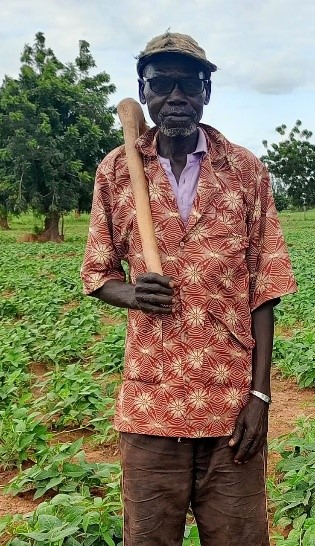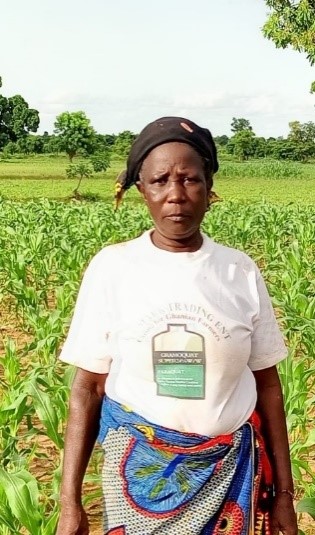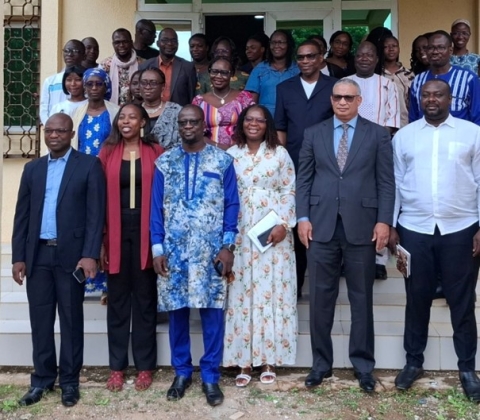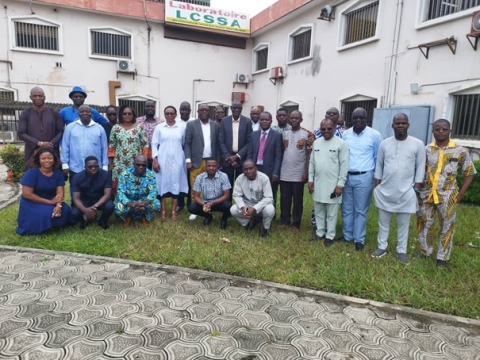Burkina Faso/Storage infrastructure: 9 warehouses with a capacity of 5,500 tonnes donated to SONAGESS
On 23 September 2025, the Minister of State, Minister of Agriculture, Animal and Fisheries Resources, Commander Ismaël SOMBIE, symbolically handed over the keys to a storage warehouse to the National Food Security Stock Management Company (SONAGESS) at the institution's regional headquarters in Tenkodogo. With a capacity of 1,000 tonnes, this warehouse is one of nine similar facilities built as part of the implementation of the West Africa Food System Resilience Programme (PRSA).
According to the FSRP Coordinator, Mr Salif TENTIKA, this initiative is also in line with the objectives of the 2023-2025 Agropastoral and Fisheries Offensive. The latter aims not only to support producers in increasing agricultural yields, but also to address the challenges of post-harvest management, particularly the storage and preservation of foodstuffs. An appropriate storage system makes it possible to prevent economic losses due to the dumping of products, while promoting better value for production. It is with this in mind that SONAGESS, whose initial mandate of managing food security stocks has been expanded to support producers by increasing purchases from farmers' organisations, is benefiting from this support.
The Director General of SONAGESS, Mr Stéphane Gildas TIENDREBEOGO, welcomed the relevance of this initiative, which will strengthen the institution's storage capacity on the eve of the field collection campaign. He expressed his gratitude to the Minister of State and the highest national authorities for authorising this strategic action.
It should be noted that a collection target of 530,000 tonnes has been set for the 2025-2026 wet season. These volumes will mainly concern paddy rice, millet, maize, cowpeas and sorghum in areas known for these crops. In this regard, SONAGESS is calling for a stronger commitment to support this operation, which is essential for consolidating national food sovereignty, through the provision of appropriate storage infrastructure and logistical resources.










